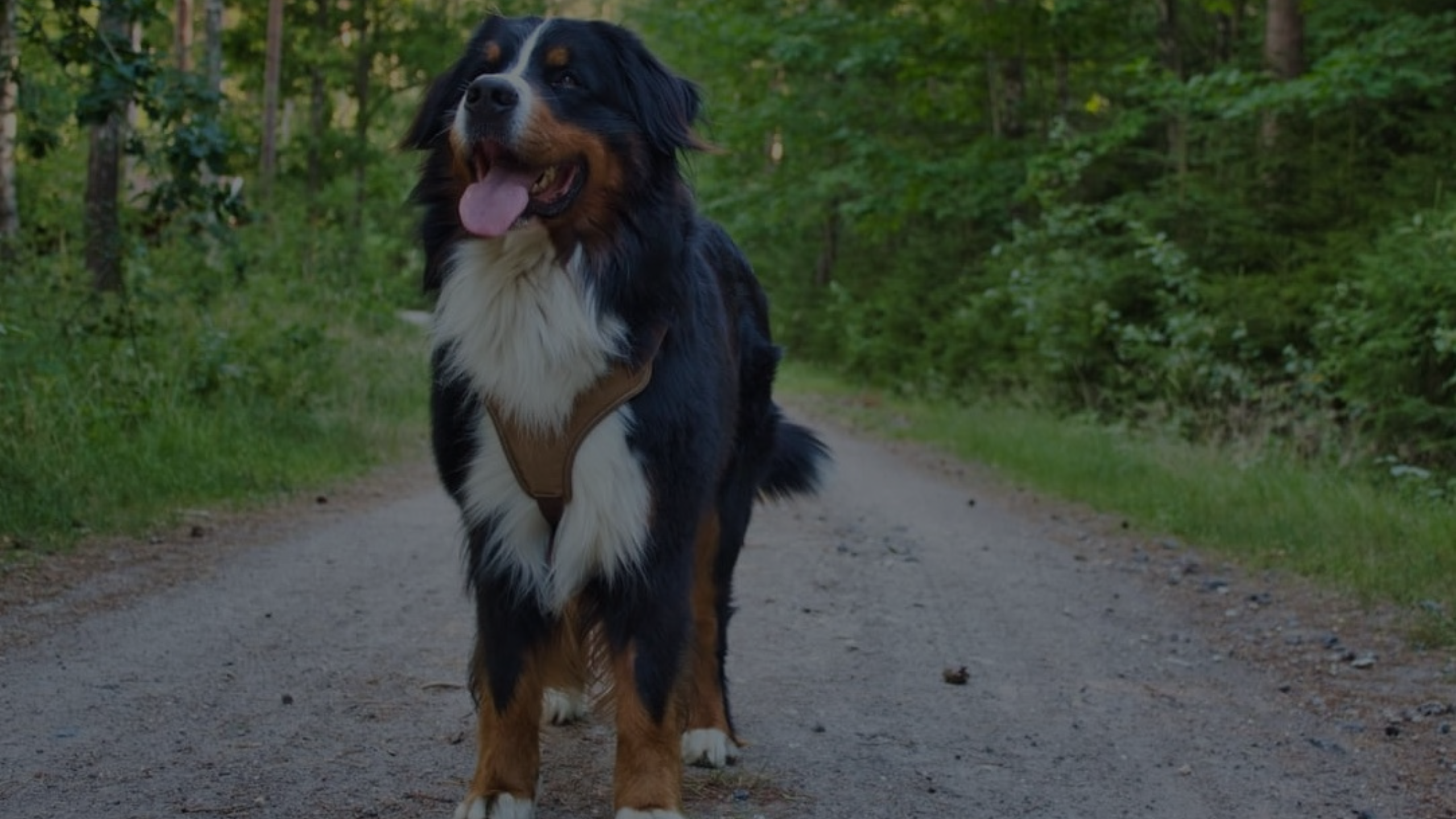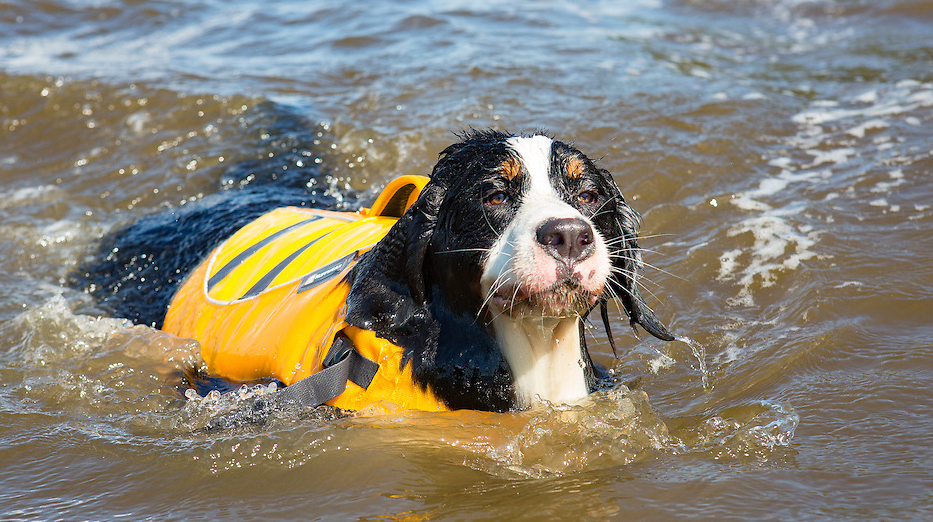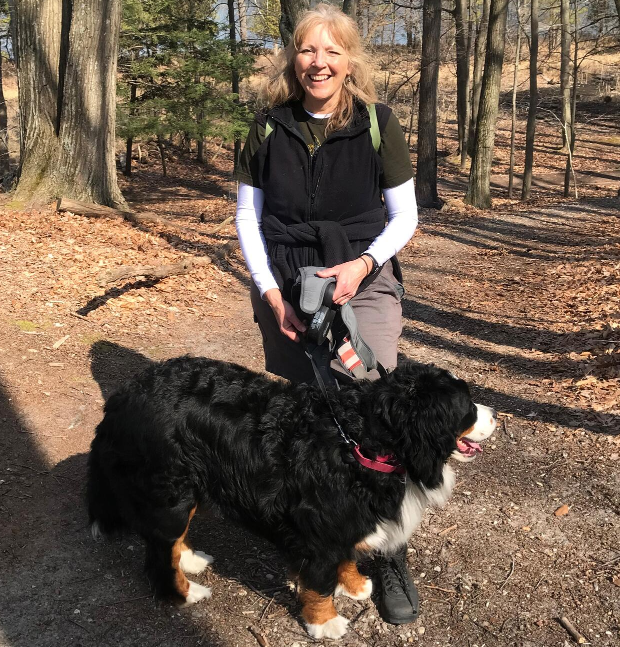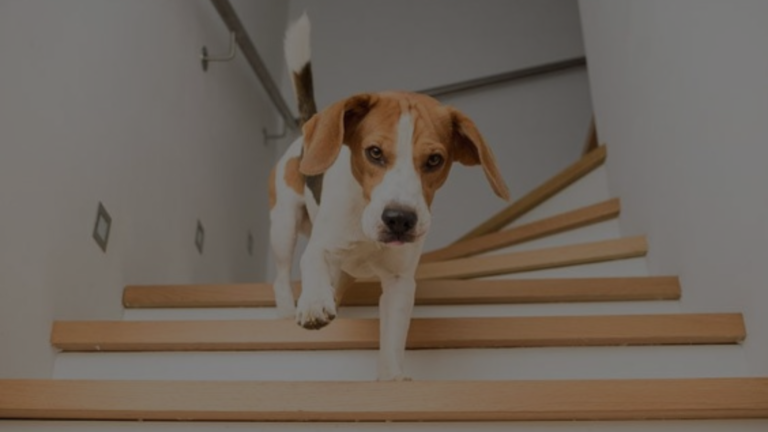The majestic Bernese Mountain Dog, with its thick double coat and gentle spirit, captures the hearts of many. But can you run with a Bernese mountain dog? The answer, like their fluffy tails, wags with nuance. While Berners possess a love for exercise, running alongside them requires careful consideration of their breed characteristics and individual needs.
Understanding Berner Anatomy and Physiology
Before lacing up your shoes, understanding your Berner’s body is crucial. These working dogs boast impressive strength and stamina, but their build comes with limitations:
- Short Snout: Berners, like other brachycephalic breeds, have shorter snouts and narrower airways, making them prone to overheating during strenuous exercise.
- Double Coat: Their plush double coat insulates them from cold but traps heat easily, further increasing the overheating risk in warm weather.
- Joint Health: While generally healthy, Berners are susceptible to joint issues like hip dysplasia, especially if pushed too hard before maturity.
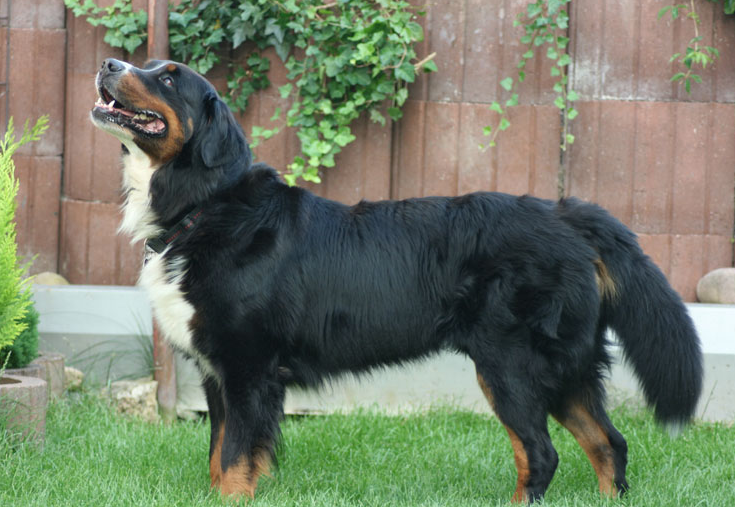
Can You Run with a Bernese Mountain Dog?
Absolutely! Bernese Mountain Dogs, despite their sturdy build, can indeed be your running companions under the right conditions. Let’s explore the factors to consider when hitting the trails with your furry friend:
- Physical Capability: BMDs are strong, but they’re not necessarily athletic in the same way as some other breeds. Their heavy bone structure means we need to be mindful of their joints. While they’re not sprinters, they can handle moderate exercise.
- Distance and Terrain: When running with a BMD, opt for softer surfaces like dirt trails or sandy beaches. Concrete or asphalt can stress their joints, so limit runs on such surfaces to about a mile. Gradually build up distance, increasing by 10% per week to avoid overexertion.
- Temperature: BMDs have thick double coats, making them prone to overheating. Avoid running in warm weather, especially above 70°F (20°C). Early mornings or cooler evenings are better choices. Carry water and offer a mid-run drink to keep them hydrated.
- Health Considerations: Always assess your BMD’s overall health. If they’re fit and conditioned, they’ll tolerate exercise better. Regular physical activity benefits their cardiovascular system and contributes to a longer, healthier life. Just like us, they thrive with consistent exercise.
Tailoring Runs to Your Berner’s Age and Fitness Level
Just like humans, Berners come in various fitness levels. Puppies under two years old are still growing and shouldn’t participate in strenuous activities like running. For adult Berners:
- Start Slow and Gradually Increase Distance: Begin with short walks and sniff breaks, gradually increasing pace and distance as your dog builds endurance.
- Cool Weather is Key: Limit runs to early mornings or evenings when temperatures are below 70°F (21°C). Opt for shady paths and ensure access to water.
- Listen to Your Dog: Pay close attention to your Berner’s body language and panting. If they seem overly tired, slow down or stop immediately.

Alternative Activities for Berner Exercise
While running might not be the best activity for every Berner, plenty of other options keep them happy and healthy:
- Swimming: If your Berner enjoys water, swimming is an excellent low-impact exercise that engages the whole body without stressing joints.
- Hiking: Exploring trails provides mental and physical stimulation, allowing them to sniff and engage their instincts.
- Scentwork: Engaging their powerful sense of smell through nose work activities is mentally stimulating and physically tiring in a fun way.
- Carting or Weight Pulling: For Berners bred for pulling, participating in carting or weight-pulling exercises (with proper training and equipment) can be a fulfilling and enjoyable activity.

Remember, You Know Your Berner Best
Ultimately, the decision to run with your Berner comes down to individual factors. Consider their age, fitness level, health, and temperament. Always prioritize their safety and well-being, opting for alternative activities if running raises any concerns.
Additional Tips for Running with Your Berner
- Use a comfortable harness: Avoid neck collars, which can put a strain on the trachea during running.
- Invest in a cooling vest: This can help regulate their body temperature on hot days.
- Carry water and a portable bowl: Keep your Berner hydrated throughout the run.
- Warm-up and cool-down: Just like humans, Berners need proper warm-up and cool-down periods to prevent injuries.
- Run on soft surfaces: Avoid hard pavement, which can be tough on their joints.
- Never force it: If your Berner shows signs of discomfort or disinterest, stop the run immediately.
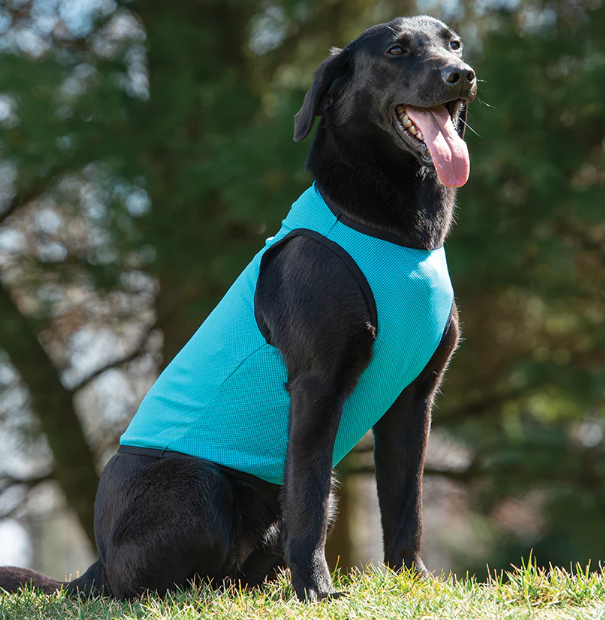
Embrace the Joy of Shared Adventures
Whether you hit the trails together or explore your neighborhood at a gentle pace, remember that the most important aspect is quality time spent with your furry companion. By prioritizing their well-being and tailoring activities to their needs, you can create joyful shared experiences that strengthen your bond and keep your Berner happy and healthy for years to come.
Resources & References
FAQs About Bernese Mountain Dogs
Are Bernese Mountain Dogs good family dogs?
Yes, Bernese Mountain Dogs are known for their gentle and affectionate nature, making them excellent family companions. They are patient with children, playful, and eager to please. However, their large size and energy levels require responsible ownership and proper training.
How much exercise does a Bernese Mountain Dog need?
Berners need moderate exercise, around 60 minutes daily. This can include walks, playtime, and activities that engage their minds like scent work or training. Puppies require less strenuous exercise as they grow.
Do Bernese Mountain Dogs shed a lot?
Yes, Berners have a thick double coat and shed heavily, especially during seasonal changes. Regular brushing is essential to manage shedding and prevent matting. Be prepared for fur tumbleweeds throughout your home!
Are Bernese Mountain Dogs easy to train?
Berners are intelligent and eager to please, making them generally easy to train with positive reinforcement methods. However, their large size requires consistent and firm training from an early age to ensure good manners and control.
What are some common health problems in Bernese Mountain Dogs?
Unfortunately, Berners are prone to certain health issues, including hip dysplasia, elbow dysplasia, and certain cancers. Responsible breeders screen their breeding stock for these conditions, and regular veterinary care is crucial.
How long do Bernese Mountain Dogs live?
The average lifespan of a Bernese Mountain Dog is 7-9 years. This is shorter than many other breeds due to their larger size and predisposition to certain health conditions. Providing proper care and nutrition can help them live longer, healthier lives.
- Bernese Mountain Dog running: Bernese Mountain Dog running through a field

Image Credit: dogtime.com - Berner swimming: Bernese Mountain Dog swimming in a lake

Image Credit: starinphotography.com - Berner hiking: Bernese Mountain Dog hiking on a trail

Image Credit: usgs.gov - Berner scent work: Bernese Mountain Dog doing nose work

Image Credit: Amazon / The Blissful Dog Store - Berner carting: Bernese Mountain Dog pulling a cart

Image Credit: pinterest.com

